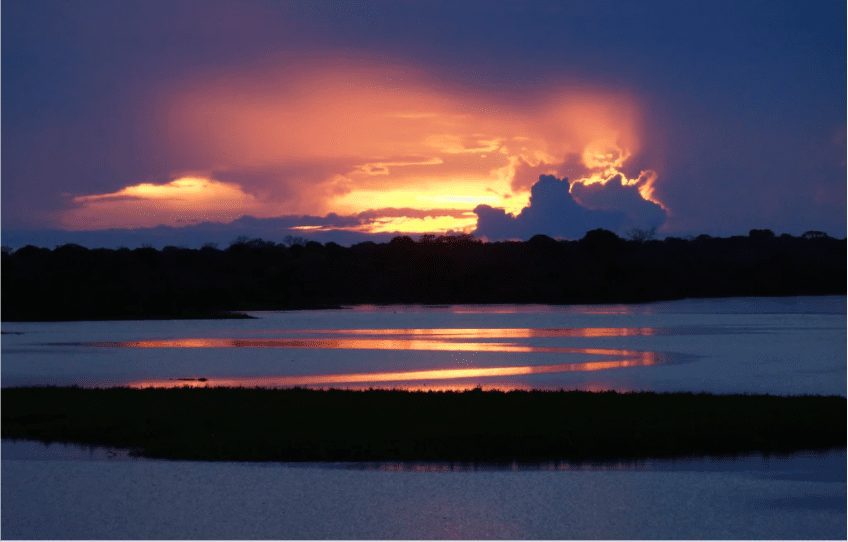This piece by research scientist and former Mexican Secretary of the Environment Victor Toledo first appeared in Spanish in La Jornada. Translation by Jane Brundage from Resilience.org.
“The world is at the most dangerous moment in human history,” says Noam Chomsky, a leading U.S. intellectual. His statement could not be more audacious. Today to the global climate crisis must be added the danger of a nuclear war, the disability of democratic mechanisms (the United States and Brazil, inhabited by more than 500 million, are governed by two insane beings elected by their own citizens) and Covid-19. The pandemic has not only turned the world upside down; it has also brought humanity completely to its knees.
The human species has knelt before an unstoppable phenomenon claiming almost a million victims. Moreover, as we have argued, and has been demonstrated, it has been nature’s reaction to the set of irrationalities of the industrial food production systems, the ultimate source of zoonoses. At least until the vaccine appears, human beings will have to face the fear of the unknown, as our ancestors [in Mexico] did with lightning, with volcanic eruptions or with earthquakes. The entire hyper-technological apparatus of the modern world has been overwhelmed by the impacts of an invisible being. The machines have again been defeated by an organism. Is there a lesson to be learned? There are many, but one is central, the mother of all lessons.
Leer este artículo en Español AQUÍ
The civilization (industrial, technocratic, capitalist and patriarchal) that dominates much of the planet today has been built on a fallacious foundation. If any attribute marks human evolution, it is that of communality, the collective organization based on mutual aid, in solidarity. This trait has not only allowed the survival of the human species for 296,000 years, but it is considered a logical derivation of the evolutionary line drawn by the species of social animals, a subject meticulously studied by sociobiology.
Communality, defined by P. Kropotkin (1907) as mutual aid institutions, was present throughout tribal organization, the village commune, the guilds, the city of the Middle Ages, and today it remains a focus of resistance in communities of indigenous cultures and cooperatives (rural, urban and industrial). Modern civilization operates, instead, under a rationality that is the extreme opposite. Competition between individuals is considered the greatest dogma, a fallacy built from a dubious interpretation of Darwin’s theory of evolution that allowed justifying the unfurling of private property, the concentration of wealth and capitalism.
This dichotomy about the meaning of social organization is in turn closely related to two radically opposite conceptions of nature. Communality is grounded in a sacred idea of nature as a living entity, as a source of life and a receiver of the dead, like Mother Earth. The modern world demolished that image and through science built an idea of nature as an inanimate mechanical system: a machine to be scrutinized, controlled, dominated, and ultimately exploited.”Both animistic and mechanistic thinking are metaphorical,” says R. Sheldrake in his famous book The Renaissance of Nature, “… but while mythical and animistic thinking is based on organic metaphors taken from life processes, mechanistic thinking appeals to metaphors drawn from man-made machinery.” The idea of conquering nature is inseparable from sexual imagery, as feminist studies have shown, but also from two totally contrary behaviors.
When human beings humbly accepted the existence of a higher being, the product of a collective intuition and the fruit of a direct connection with life itself, they facilitated dialogue, reciprocity, compassion and, consequently, the solidarity that the commons allows. In other words, spirituality (not religiosity) and communality are inseparable.
But under the pretense of conquering nature, the being became sovereign, and in its current version (The Wolf of Wall Street) individualistic, arrogant, materialistic and hedonistic. Beings made to compete and win at all costs are beyond laws, rules, principles and scruples. Masters in the art of simulation and lies. If the world is upside down and on the brink of chaos, it is due to the power that these spiritless beings exercise every day in all fields. Those of the economy, politics, diplomacy, the army, science, religion and intellectual creation.
Only beings with conscience will save the species. They are already doing it.
To the memory of Álvaro Aguilar-Ayón, his conscience and his spirit.
+ + +
*Víctor M. Toledo, research scientist at the Institute for Ecosystem and Sustainability Research (Instituto de Investigaciones en Ecosistemas y Sustentabilidad), Morelia Campus UNAM, is a Mexican biologist with PhD from the National Autonomous University of Mexico (UNAM). Dr. Toledo has combined his scientific training with studies in economic policies, agrarian cultures and rural sociology. An expert in ethnoecology (the cross-cultural study of how people perceive and manipulate their environments), his studies and theoretical contributions regarding the relations between indigenous cultures and the natural world are recognized internationally. Dr. Toledo served as head of the Secretariat of the Environment and Natural Resources (SEMARNAT) in the administration of Mexico President Andrés Manuel López Obrador from May 2019 to September 2020. See also: Victor M. Toledo, Biologist, Ethnoecologist: “Passionate for Life“.

- Community Defenders of the Territories Moving Forward - March 24, 2022
- Pablo Alarcón and his luminous environmentalism - March 11, 2022
- My Manifesto: Toward a Politics for Life - January 27, 2022